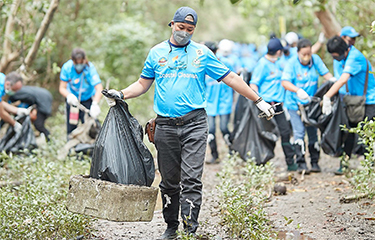Thai Union releases latest sustainability report, plans to add climate targets

Thai Union has published its 2021 sustainability report to showcase its efforts in realizing its sustainability targets, including plans to decarbonize its operations.
In 2016, Thai Union introduced its global sustainability strategy, SeaChange, which contains measurable commitments to foster transformations across its operations and its supply chain.
Its latest report, released on 31 May, reviews the progress that Thai Union has made through implementing SeaChange over the past year.
Thai Union has completed its first greenhouse gas inventory across Scope 1, 2, and 3 emissions and has committed to full transparency in its international tuna supply chain by 2025.
This year, the company plans to announce a major update to SeaChange, which will include the introduction of new science-based targets to help fight the climate-change threats.
“We are also excited about our future plans, which will extend even further our leadership role in the industry, starting with a significant revision to SeaChange, including setting new goals and commitments to 2030,” Thai Union Group Director for Sustainability Adam Brennan said. “We have also submitted a commitment letter to the Science Based Targets initiative (SBTi) and look forward to announcing our near-term and long-term climate targets, as we step up our action to address the existential threat of global warming.”
Thai Union has concluded various “blue finance” loan agreements to support the implementation of its sustainability goals. The company’s adoption of blue finance initiatives, which are linked to the implementation of major performance indicators and sustainability performance targets, will help the company achieve its sustainability targets, it said, including the aim of having 75 percent of its long-term funding coming from blue finance loans by 2025.
Last year, Thai Union also participated in the Ocean Disclosure Project, a global initiative where seafood businesses publicly share details on the sourcing of their seafood. Its participation is part of its efforts to realize its SeaChange, as well as traceability and transparency commitments in its business operations.
“The backbone of our sustainability strategy is the ability to fully trace our seafood – from catch to consumption. With full traceability in place, we will be able to identify, investigate and improve performance on key issues such as labor and responsible sourcing,” the company said.
Photo courtesy of Thai Union






Share